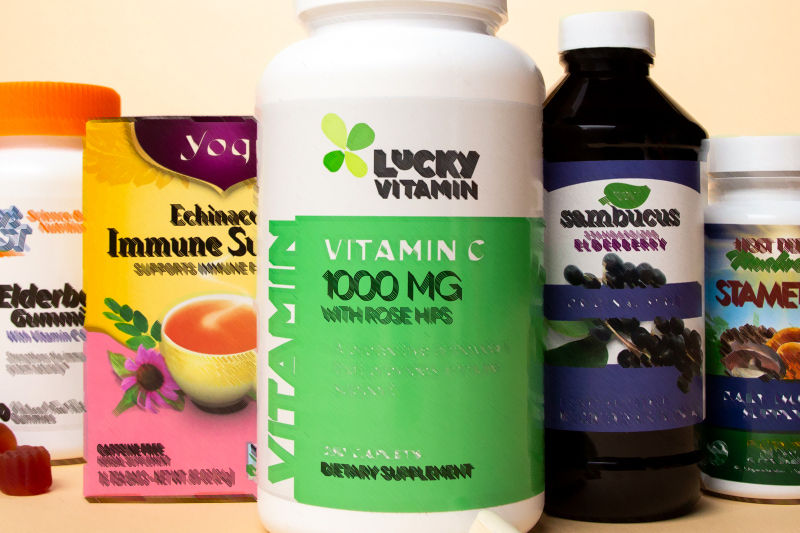The Vitamin Alphabet, What Do These Lettered Vitamins Do for You?
- Kylie Booker

- Jul 13, 2020
- 3 min read
Vitamins are micronutrients. That means that your body only needs a small amount of any given vitamin to function properly. Still, if you're not getting that small requisite amount of one or more vitamins, your health could face dire consequences.
Keep reading to learn about different vitamins, how each one assists your body, and how you can ensure you're consuming the right amount.
Vitamin A
Properties: Dissolves in fat
Function: This vitamin supports the immune system, your eyes, your reproductive system, and cell signaling. Without Vitamin A, your eyes wouldn’t be able to make a protein that receives light. This is the source of that old myth that eating enough carrots will give you night vision. While there’s very little scientific evidence on night vision and carrots, a Vitamin A deficiency does cause blindness.
Source: Carrots, spinach, broccoli, mango, cantaloupe melon, apricots, pumpkins, tomato, beef liver, herring.
Overdose Possibility: Yes. Because Vitamin A is fat-soluble, your body stores it in the liver instead of getting rid of excess vitamins in the urine. Arctic explorers who ate polar bear liver and people who take too many supplement pills can experience acute poisoning. However, eating lots of carrots or other plants that are high in beta-carotene (a substance that gets turned into Vitamin A) isn’t toxic. It might turn your skin orange, though.
Vitamin C
Properties: Dissolves in water
Function: Vitamin C is required for your body to make collagen, the structural protein that holds your skin and soft tissue together. Before we understood nutrition, sailors who spent months at sea became Vitamin C deficient and developed scurvy. This painful disease caused bleeding gums, and reopened old wounds.
Source: Lemons, guavas, kiwis, strawberries, papayas, oranges, bell peppers, tomatoes.
Overdose Possibility: None. Vitamin C is water-soluble so any extra doses that you take will simply be flushed out by your kidneys. Taking super doses may cause nausea and diarrhea, but there are no life-threatening side effects.
Vitamin D
Properties: Dissolves in fat
Function: Vitamin D helps your intestines absorb calcium and supports bone building from the calcium in the blood. Vitamin D deficiency leads to a decrease in bone mass, a condition called osteoporosis.
Source: UV rays from sunlight, salmon, egg yolk, mushrooms, milk, liver, sardines, salmon
Overdose Possibility: Yes. Having too much Vitamin D in your blood leads to increased calcium levels as well. Milder symptoms include nausea and lack of appetite. However, severe cases of Vitamin D overdose can lead to kidney failure.
Vitamin E
Properties: Dissolves in fat
Function: Vitamin E is an antioxidant. These molecules neutralize the cell-damaging by-products of metabolism. Vitamin E also plays a role in supporting your immune system and gene expression.
Source: Almonds, plant oils, abalone, avocados, salmon, and trout.
Overdose Possibility: Too much Vitamin E can lead to excessive bleeding because it stops the ability to clot blood. This, in turn, can lead to strokes and brain hemorrhaging. Overdose can happen if you take too many Vitamin E supplements.
Vitamin K
Properties: Dissolves in fat
Function: Vitamin K has many functions in the body, but the most important one is helping your body produce blood-clotting factors. People who are on blood thinners must remember to take enough Vitamin K.
Source: Dark, green vegetables such as collard greens, kale, spinach, broccoli, Brussels sprouts, and fermented foods like natto beans and sauerkraut.
Overdose Possibility: Not really. If you take Vitamin K3, a type of synthetic Vitamin K, it can be toxic. However, natural Vitamin K (K1 and K2) aren’t toxic at high levels, so don’t worry about eating too many green vegetables.
B Vitamins (B1, B2, B3, pantothenic acid, B6, B7, folic acid and folate, B12)
Properties: Dissolves in water
Function: Vitamin B complexes play a role in nerve function, metabolism, and cell growth. This is why it’s important that pregnant women take folic acid and folate supplements as these types of Vitamin Bs can help with fetus development.
Source: Eggs! Remember, eggs are the food source of growing chicks, so they are naturally high in B Vitamins. Other food sources include milk (aka baby cow food), salmon, beef, pork, and green vegetables.
Overdose Possibility: Yes. Effects of taking too much Vitamin B complex supplements include skin rash, intestinal problems, high blood pressure, and mood swings.
Eat real food!
It may seem tempting to go out and buy multi-vitamin supplements right now. But did you notice an interesting trend in this article? Overdoses are usually caused by supplements, not people eating food in its natural state! In fact, even vitamin A won’t hurt you in large doses if you’re eating plants. The lesson here is to expand the types of food that you eat as the number-one way to get all the vitamins you need for a healthy body.


Comments